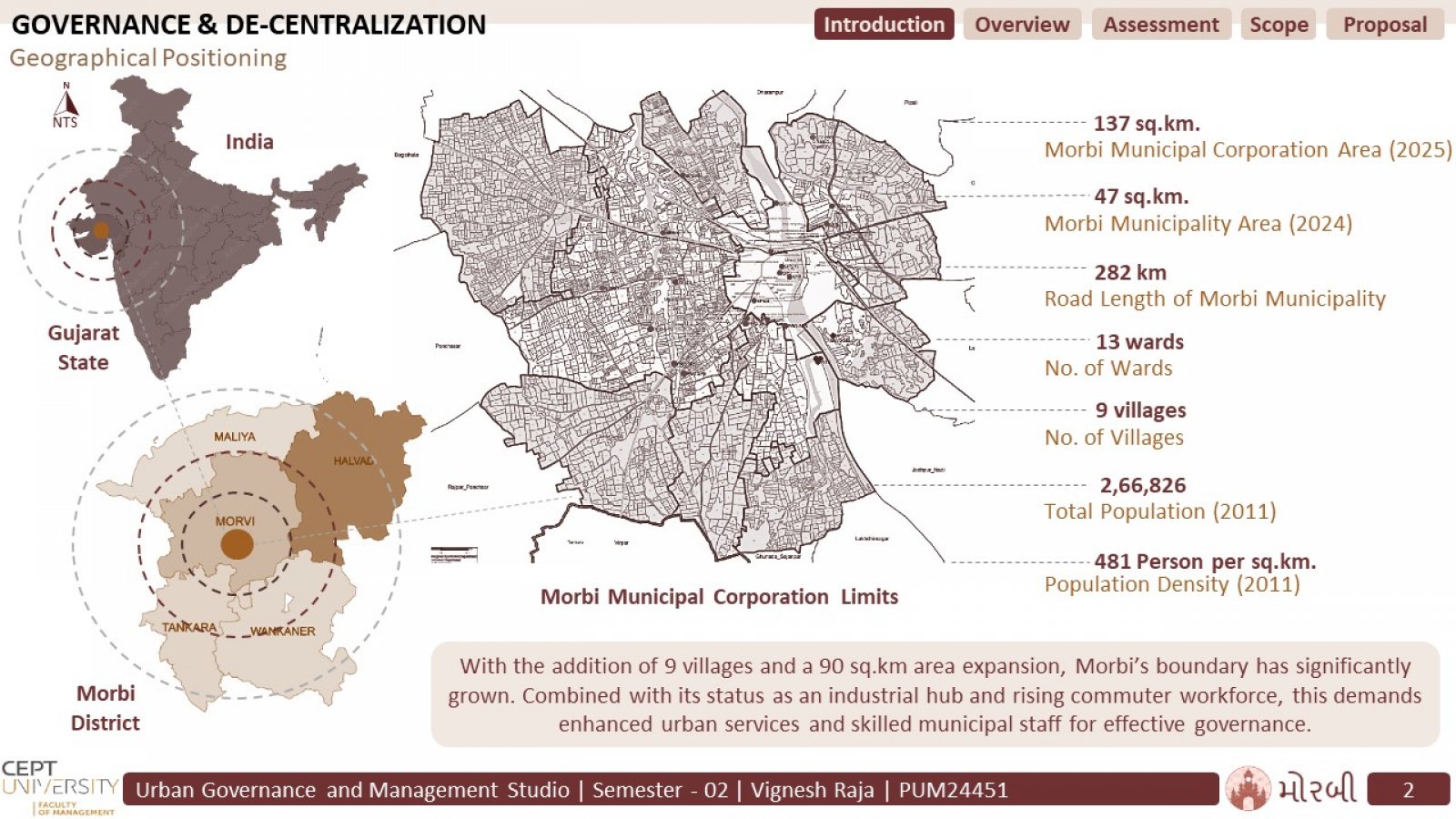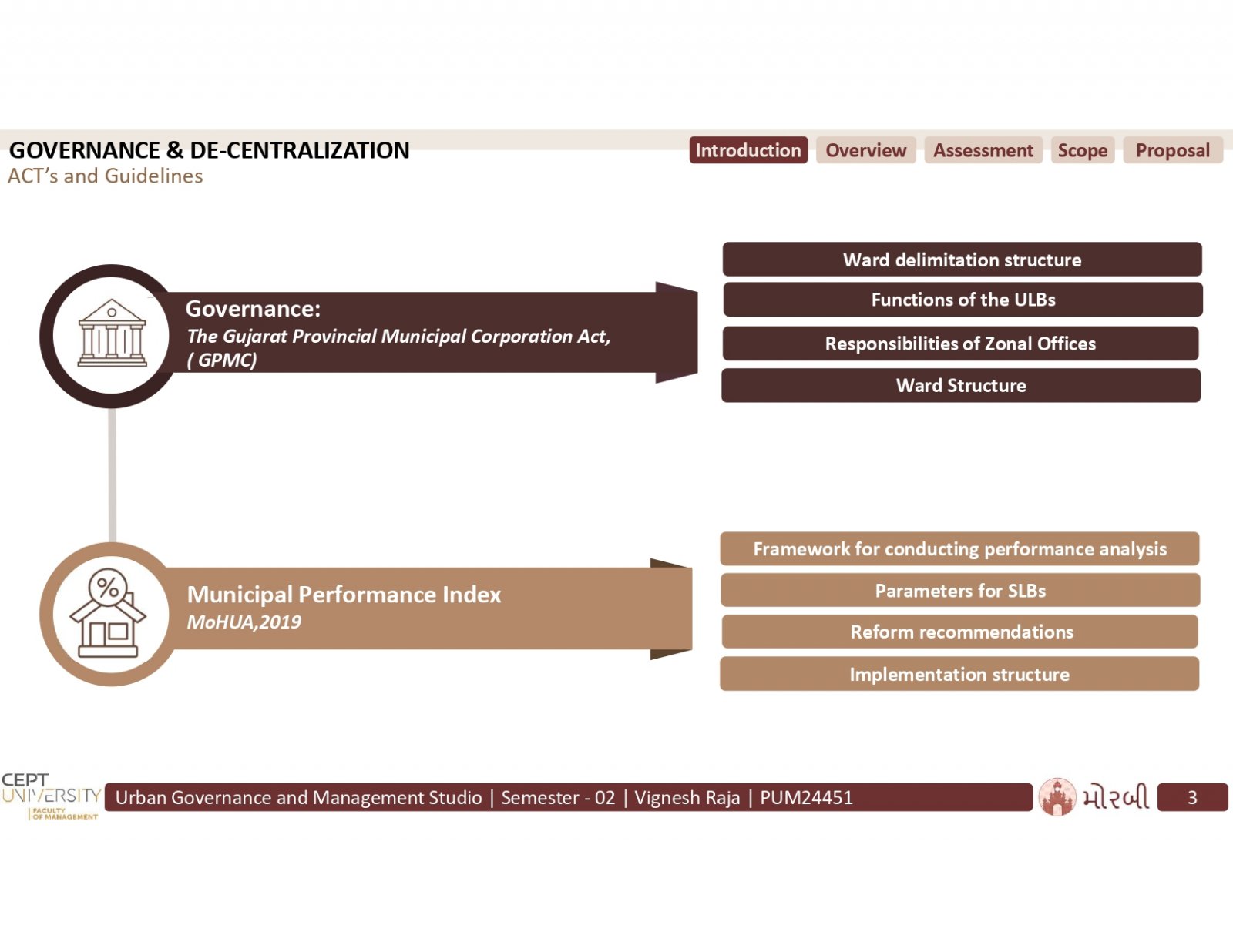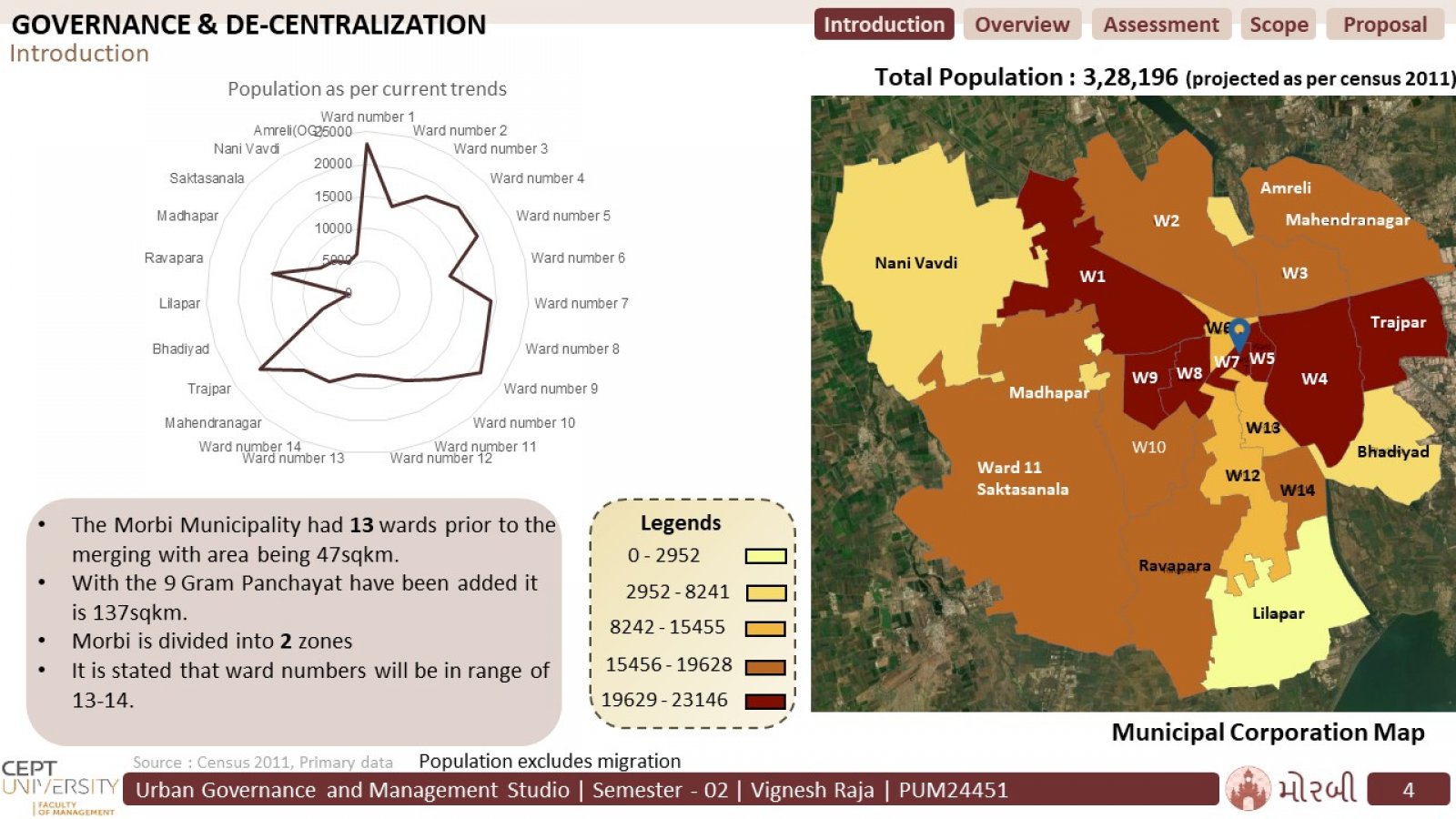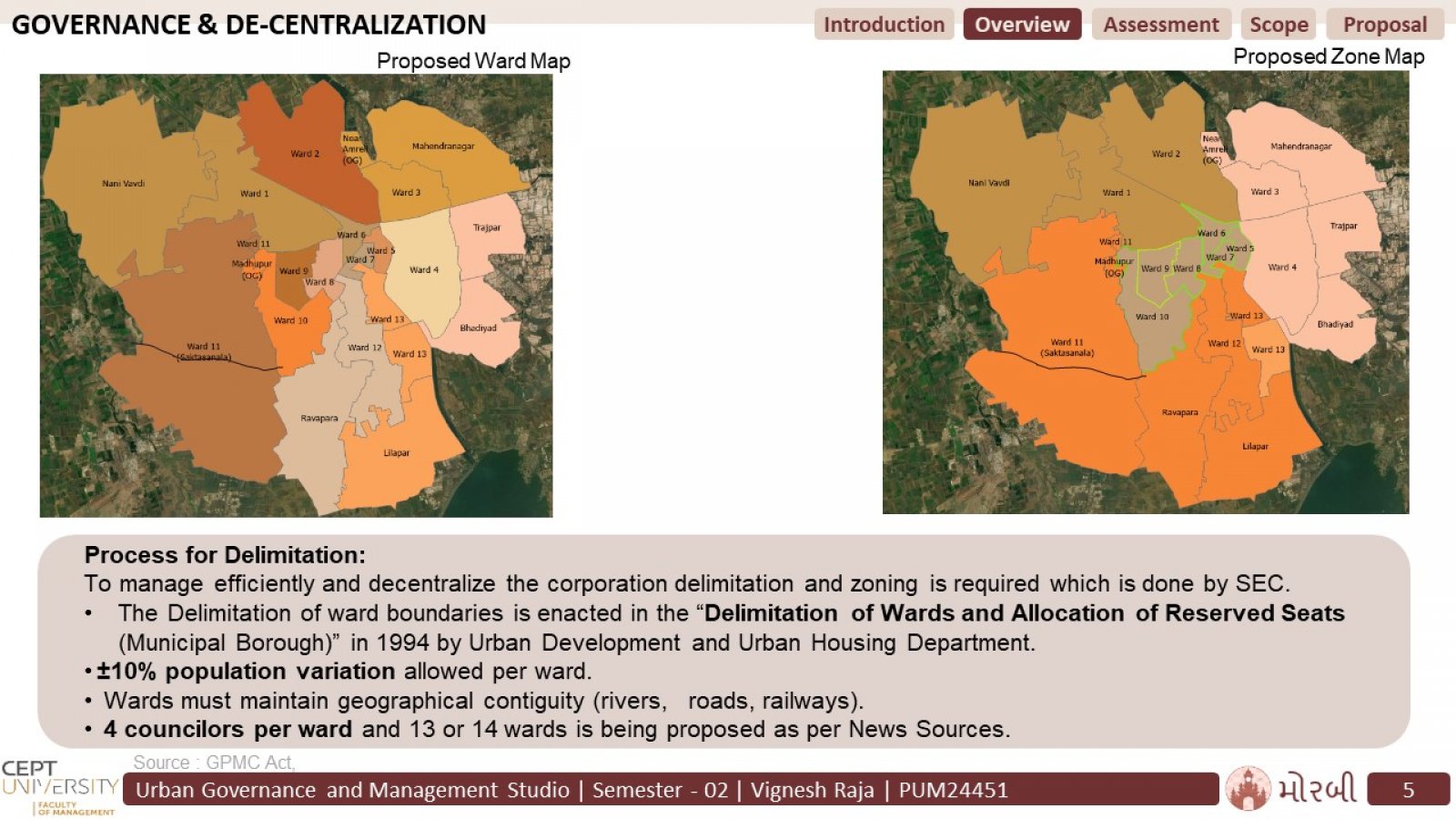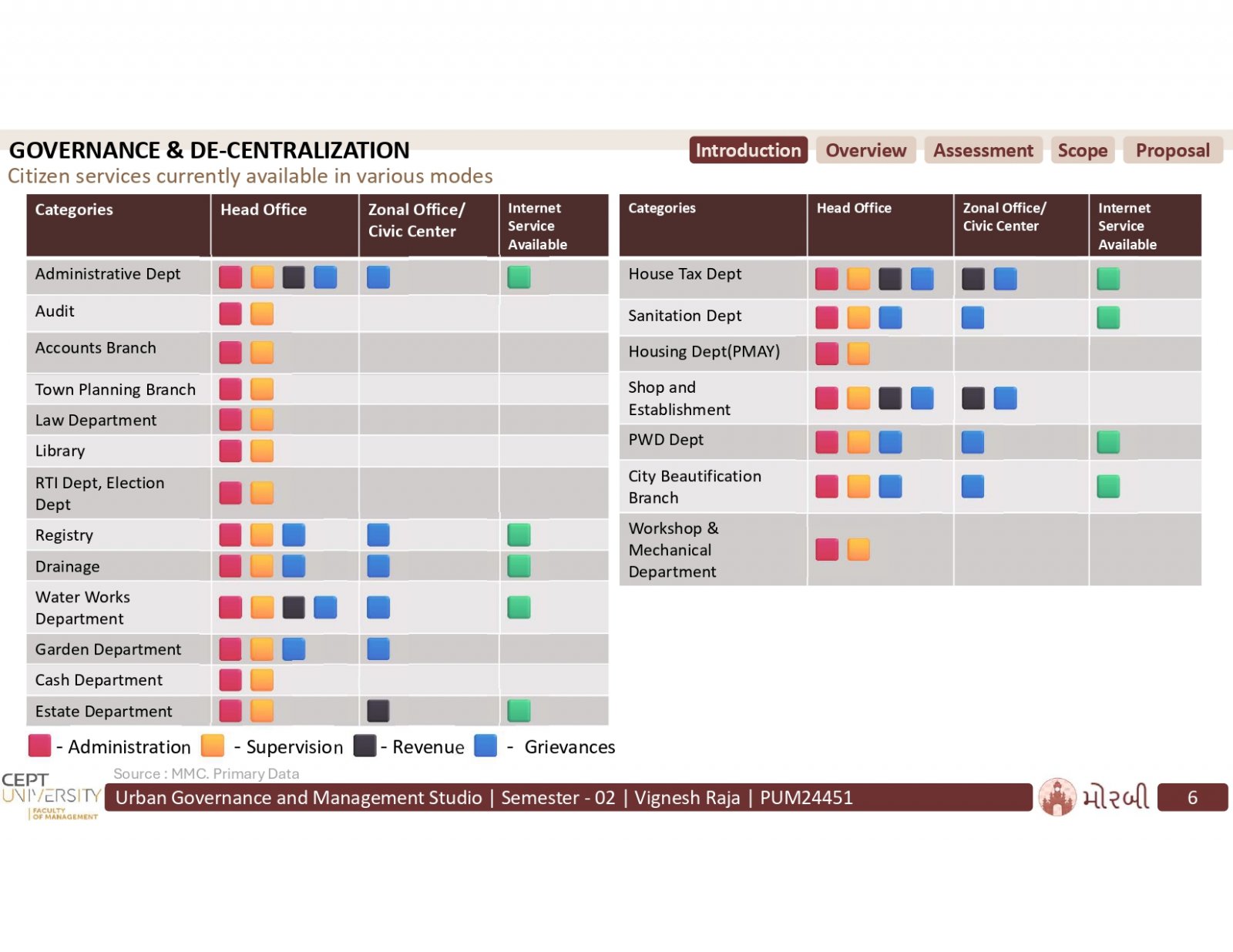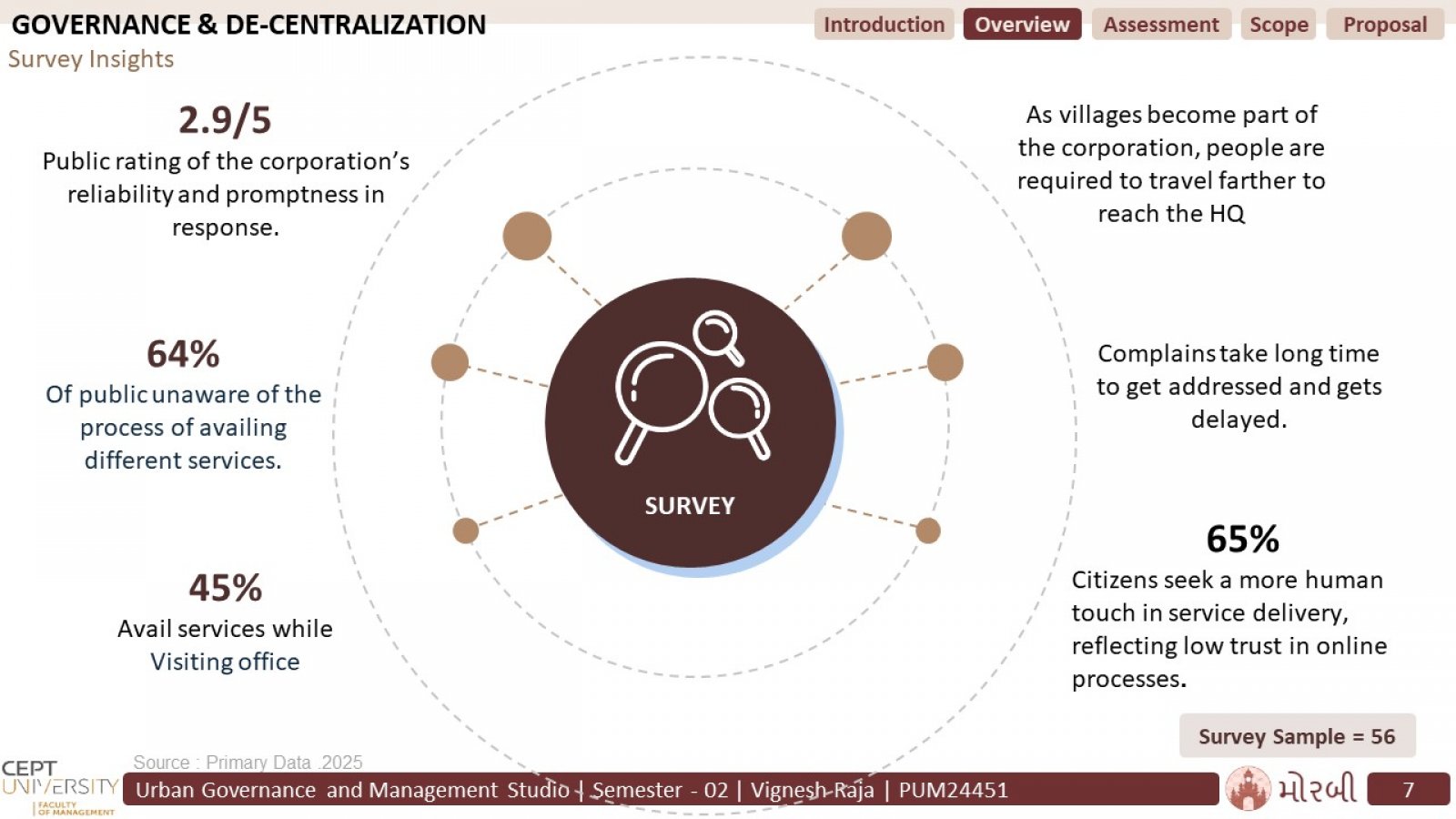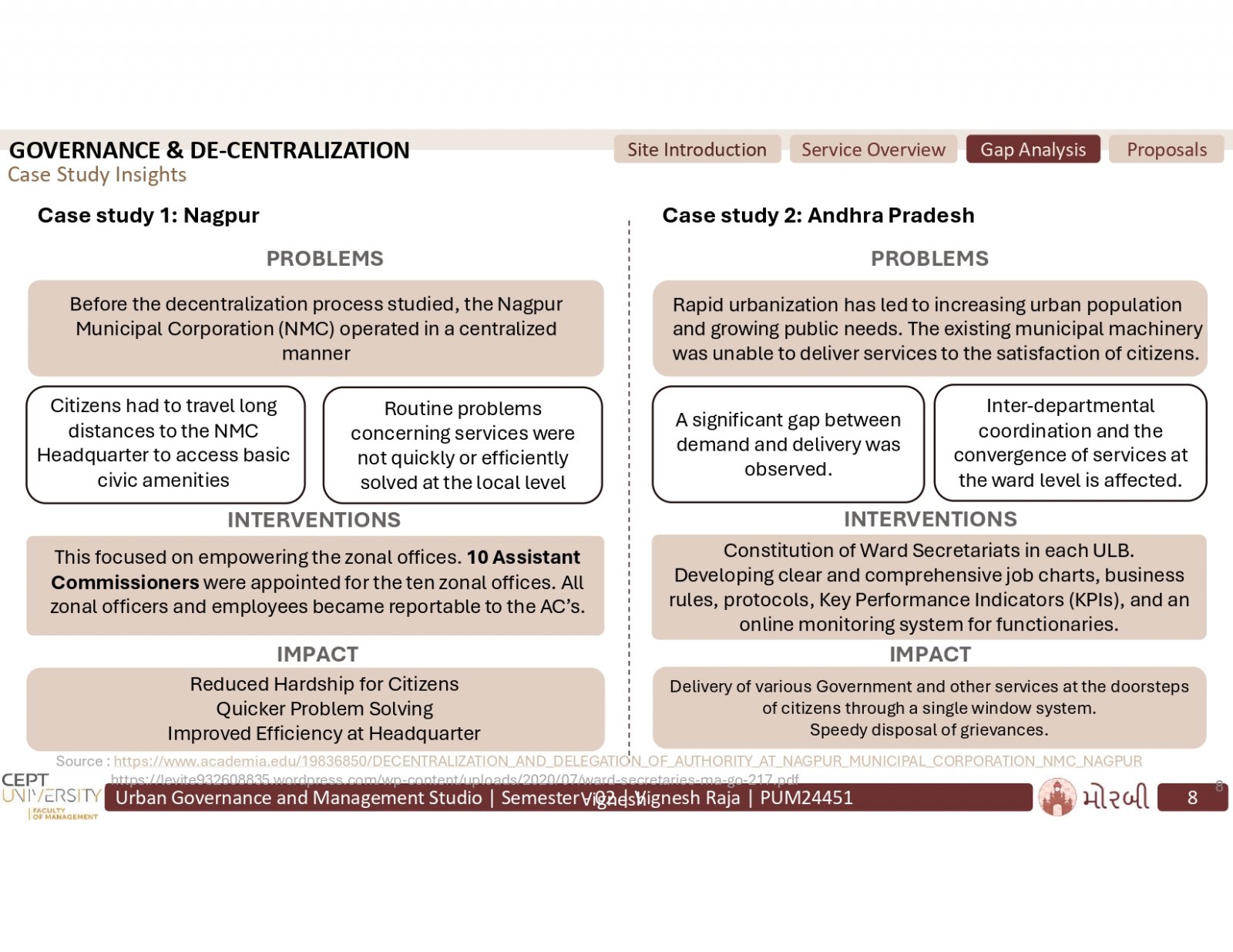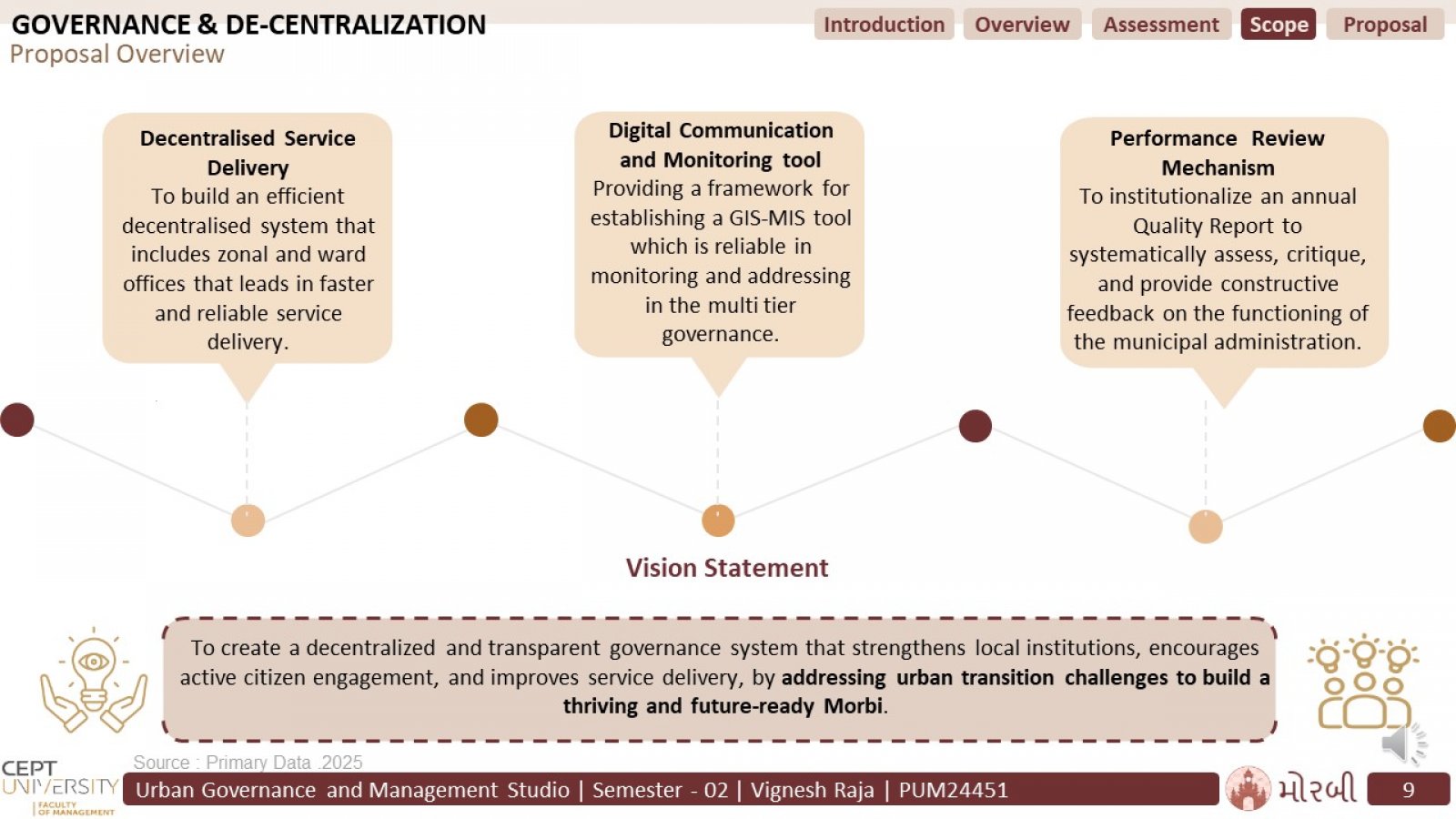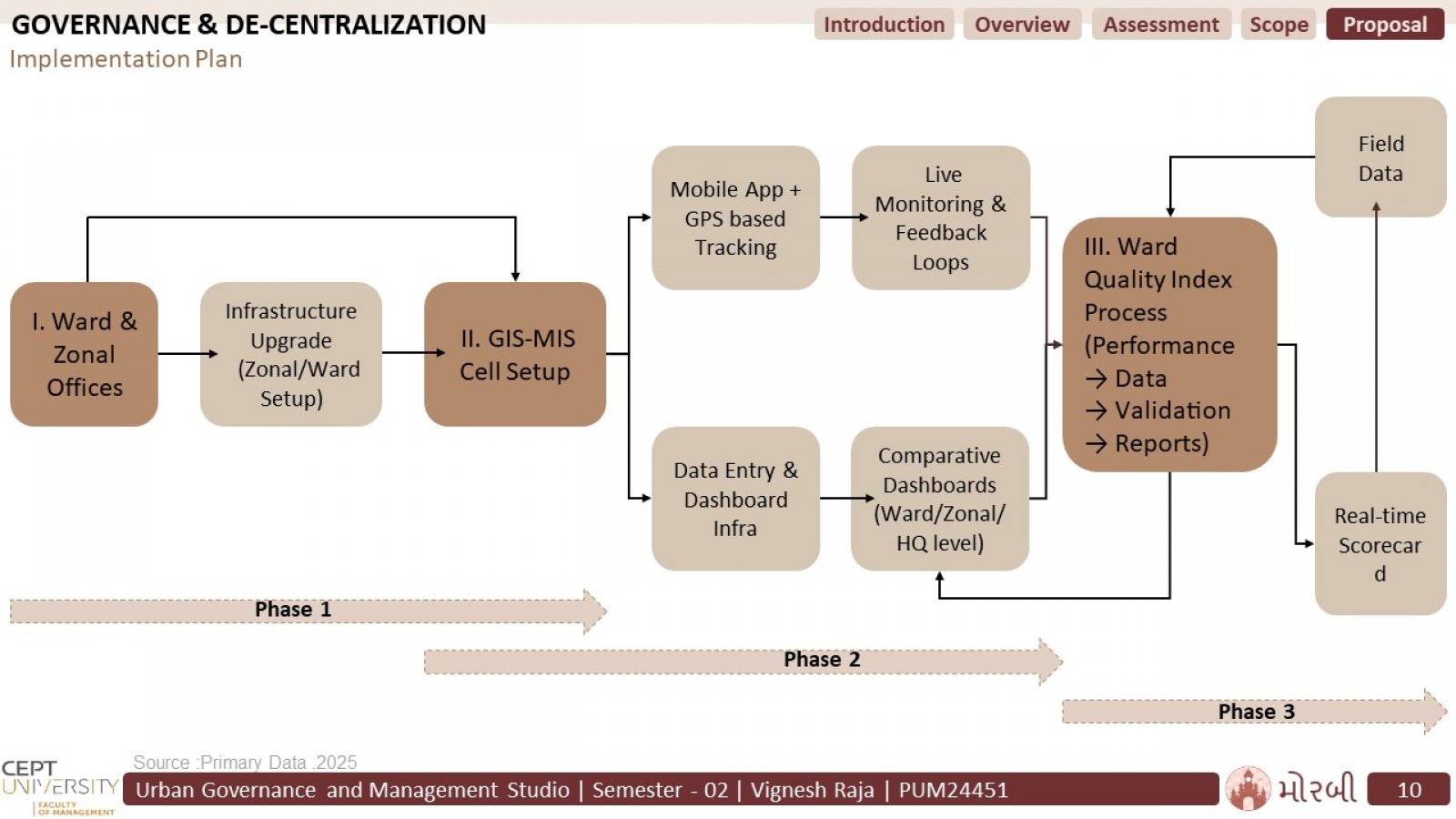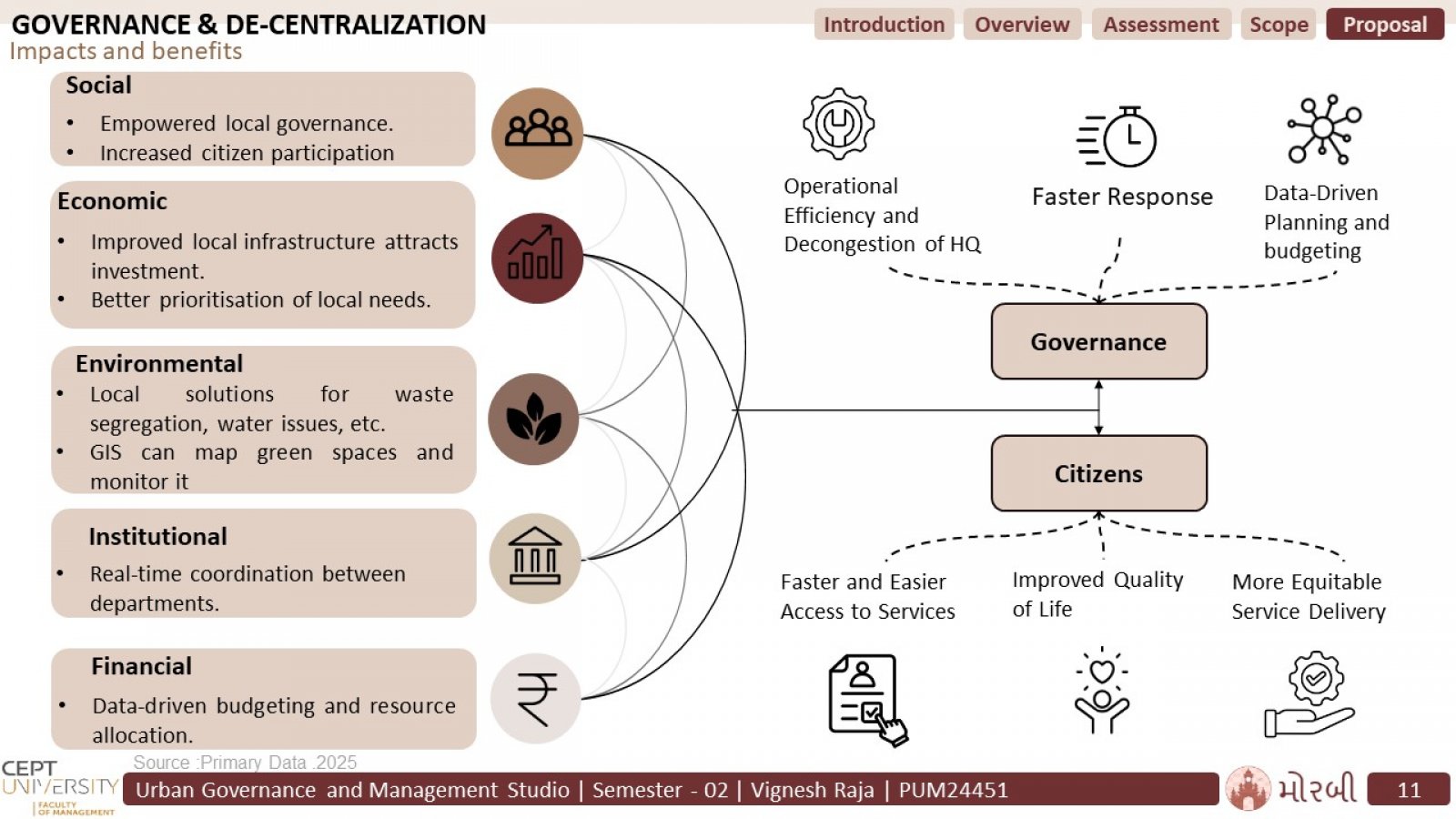Your browser is out-of-date!
For a richer surfing experience on our website, please update your browser. Update my browser now!
For a richer surfing experience on our website, please update your browser. Update my browser now!
This project, part of the Urban Governance Studio, studies Morbi’s transition from a municipality to a municipal corporation. It focuses on general administration and highlights issues caused by over-centralisation and the absence of ward-level functions, leading to service delivery delays. The proposal advocates decentralising the head office by introducing zonal and ward-level responsibilities, supported by a structured communication and reporting system. It also recommends upgrading manual monitoring systems to digital platforms and introducing a Ward Quality Index involving citizens and elected representatives. These reforms aim to enhance accountability, public participation, and overall governance efficiency in the municipal corporation.
